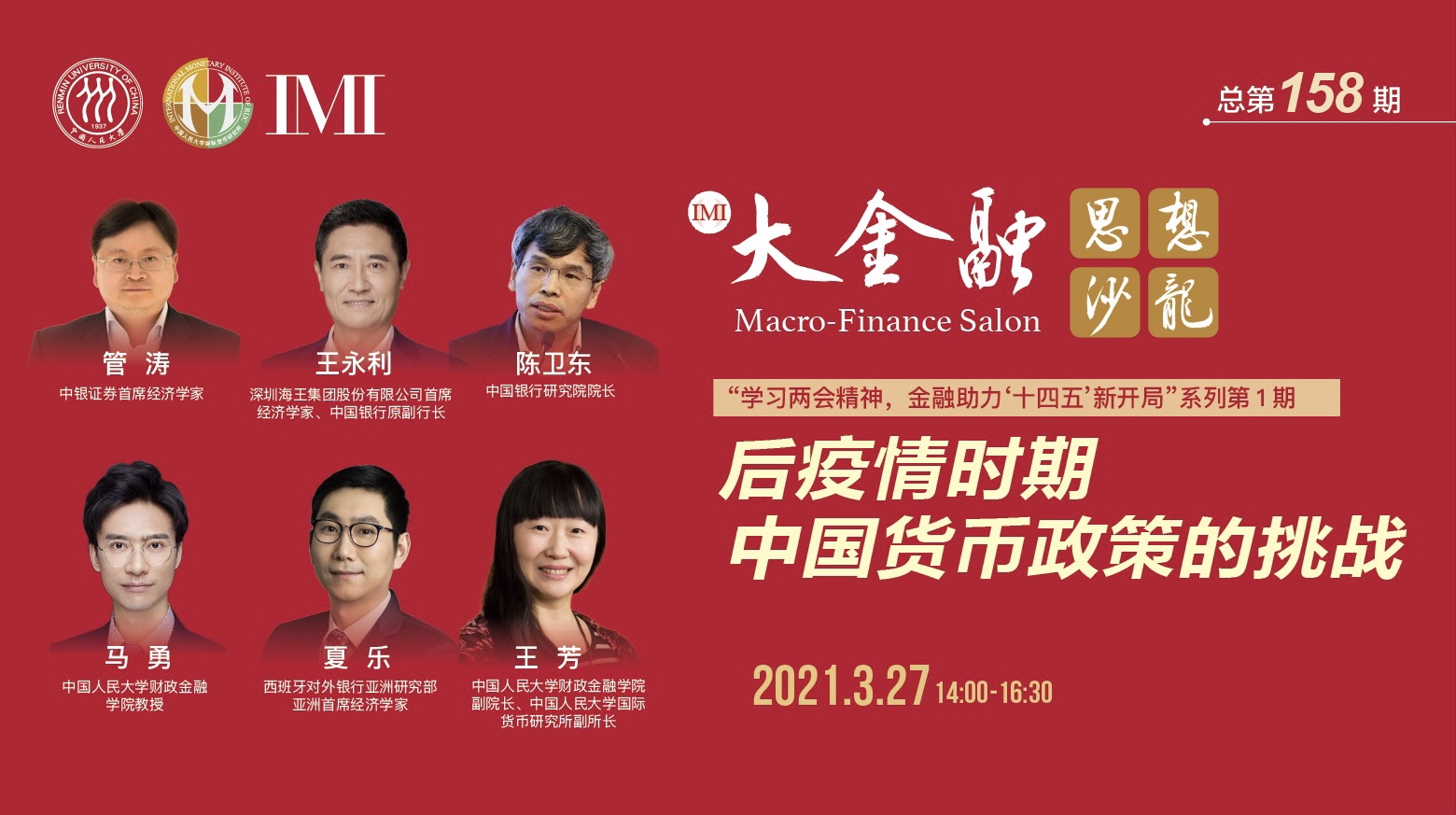Macro-Finance Salon (No. 158) Challenges to China’s Monetary Policy in the Post-Pandemic Era
2021-04-29 IMI
On March 27, Macro-Finance Salon (No. 158) was held online. It was the first webinar for the Two Sessions online series. The seminar is with the title of “Challenges to China’s Monetary Policy in the Post-Pandemic Era”.
Xia Le, Chief Economist for Asia at BBVA Research delivered a keynote speech on the topic. Chen Weidong, Director of Research Institute of Bank of China; Guan Tao, Chief Global Economist of BOC International (China); Wang Yongli, Chief Economist of Shenzhen Neptunus Group and former VP of Bank of China; and Ma Yong, Professor of SFRUC joined the webinar as panelists. The webinar was presided over by Wang Fang, deputy director of IMI and Associate Dean of School of Finance at RUC.
In the keynote speech, Mr. Xia Le discussed the current situation and challenges of China’s monetary policy on six aspects: The normalization of monetary policy adopted during the pandemic; Improve interest rate corridor and monetary transmission mechanism; The role of monetary policy for financial stability; The relationship between monetary policy and financial policy; How to incorporate carbon neutrality and environmental protection standards into monetary policy; The influence of RMB internationalization and digital currency on monetary policy. He also addressed other issues, such as the condition to incorporate asset prices into monetary policy and the necessity to enhance monetary policy independence.
After the keynote speech came the discussion session. Mr. Chen Weidong analyzed the impacts of ultra-loose fiscal and monetary policies to the future. He also expressed his views on the carbon neutrality mentioned in the keynote speech. He believed that the development of green economy will be significance to the future’s regulation of monetary policy. Mr. Guan Tao pointed out that the monetary policy communication is a major challenge in the post-pandemic era. He also shared his views on how the recent US rate rise impacts China. Mr. Wang Yongli considered the tendency and control of China’s monetary policy are not just realistic and practical problems, but also theoretical ones. He discussed on how to set the orientation and target for monetary policy from a theoretical standpoint. He also raised the issue on the current monetary policy. Professor Ma expressed his views and thoughts on two issues, the direction of monetary policy and the challenges of the entire monetary policy framework.
Finally, Professor Wang concluded that the monetary policy is developing rapidly. The practice has been challenging the theory, so the theory must also advance constantly. The webinar was a success. Every panelist joined to the discussion and brought profound insights to the topic.
